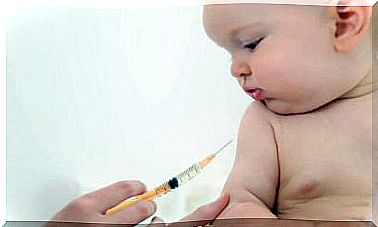7 Warning Signs Of Anemia In Children
Anemia in children is considered one of the diseases of most interest in public health due to the serious consequences it can generate on child development. It affects almost 50% of children of preschool age, between 6 and 24 months of age.
There are many studies that have been carried out in search of the main cause of this alteration and the most advisable tools to combat it. Keep reading to know more!
What is anemia?

Anemia is a drop in hemoglobin levels. This is responsible for transporting oxygen within the red blood cells. For this reason, a decrease in hemoglobin values leads to a decrease in the supply of oxygen to the organs.
There are some exceptional situations, such as pregnancy, in which it is considered normal for hemoglobin values to be below the range of limits that laboratories have.
But every time there are data that indicate the appearance of a possible anemia, it is necessary to consult with the specialist doctor for the interpretation of all the values.
Types of anemia in children
Depending on the cause of anemia, it can be classified into different types:
- Lower production of red blood cells. The bone marrow is responsible for producing them and, for this, it needs iron, folates and vitamin E.
- Destruction of red blood cells. The medical term is hemolysis and it consists of a faster-than-normal elimination of red blood cells.
- Iron loss. It is usually frequent in cases of bleeding or due to insufficient iron intake in the diet.
Symptoms of anemia in children
Anemia in children can manifest itself in several ways, as indicated in an investigation published in the Peruvian Journal of Experimental Medicine and Public Health . Some of them are listed below:
1. Tiredness or fatigue
The term used in medicine for this symptom is asthenia. In the presence of it, it is advisable to go to a pediatric specialist who will assess the possible cause by carrying out the necessary physical examination.
Fatigue or tiredness is difficult to define, especially for a child. It should always be considered that it must be an extreme symptom. In the child it is seen as a lower physical performance and a continuous desire for rest.
2. Irritability
This symptom usually accompanies fatigue and, like this, it is very difficult to identify correctly. Many children present symptoms of tantrum or irritability due to their own development or due to different causes.
3. Anorexia in anemia in children
Loss of appetite is another major symptom associated with anemia in children, as indicated by a group of researchers from the Institute of Nutrition and Food Hygiene. However, it is a condition that can appear occasionally due to infectious conditions or specific situations such as problems at school.
It is recommended to monitor the evolution and check the duration of this condition to request a consultation with the specialist if it persists over time.
4. Pagophagia or pica
It is a rather strange symptom but it can appear in the presence of anemia in children. It consists of the intake of non-food products.
This behavior alteration should be well monitored by parents or guardians and urgently request a doctor’s consultation; especially for the possible intoxications that may debut from it.
5. Paleness or jaundice of skin or mucous membranes

A change in the color of the skin indicates a decrease in the number of red blood cells. If these changes occur sporadically and your recovery is rapid, it is usually associated with acute symptoms that resolve. But if they are kept for several days, it is advisable to visit the pediatrician for evaluation.
6. Tachycardia in anemia in children
A high heart rate or palpitations are common symptoms of possible anemia in children. Thus, this symptomatology is usually shown in the child with dizziness, possible chest pain or difficulty in breathing.
When this condition occurs frequently in a child, they should be consulted with their pediatrician for a correct assessment, since it may also be due to other types of problems.
7. Hair loss or weak nails
One of the symptoms that appear in anemia in children are weakened nails and hair loss. Depending on the age of the child, the latter may be more difficult to identify due to the presence of very fine hair.
The case of anemia in children
In conclusion, there are many symptoms that can appear in the event of anemia in children. Thus, it is key to be vigilant to detect any problem early and avoid possible complications. If you have any questions, the pediatrician will always be at our disposal to consult you.









